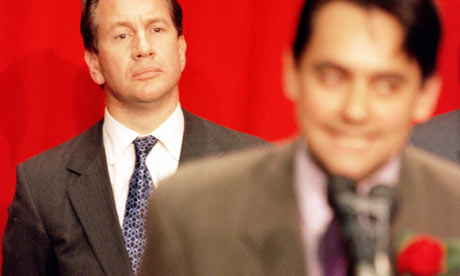In the wake of the Labour leadership struggle, with various candidates grasping for immigration as the explenation for Labour’s defeat, Sunny aks for a progressive narrative on immigration:
here is the dilemma for the left. The public are not easily persuaded by facts. There’s no way of ‘educating them’. The right-wing media exists and it won’t stop printing false stories. And there are lots of traditional Labour supporters who have concerns about immigration (Labour was about 30 points behind in the polls on the issue).
And there is little evidence that those concerns translated into lost votes. Labour had lost millions of voters even before this election, mainly because of Iraq. Nevertheless, Labour was about 30 points behind. So what would a progressive narrative on immigration look like? How do you deal with people’s concerns without sounding like the English Defence League, the BNP or Andy Burnham? How does that narrative offer solutions and hope without encouraging people to be bigots or making them fearful of immigrants?
What’s the narrative? What do you say on the door-step? Thoughts?
Immigration is a red herring. Labour didn’t lose because of immigration, or of not being tough enough on immigration, or because of anything other than a) the shit economy and b) the general public’s slow realisation that New Labour is such a shower of shits even the possibility of a Tory government is no longer quite horrifying enough to keep on voting Labour, as the latter would just do most of the evil the Tories are suspected of wanting to do anyway. That’s it. Now for Burnham, Balls and the Millibands this reality is one that can’t be acknowledged, as they are all part responsible for this. Hence this ridiculous insistence that it was fear of foreigners that led to Labour’s defeat, when the sole good news of the election was the complete and utter defeat of the BNP and its message.
But we on the left do not need to share this illusion. Burnham et all are trapped by their New Labour assumptions, that mixture of private enterprise fetishism and social authoritarianism — we aren’t. We know that if there’s a conflict between “natives” and “immigrants” about council housing the problem isn’t too many immigrants, it’s too few council houses and the solution isn’t to deport more people, but to build more houses! Labour has had thirteen years to address the housing shortage, but chose to bung money at private developers in nebulous schemes rather than allow councils to build new flats, then blames things on those least able to defend themselves, fanning the flames for the BNP.
So what do we need to do? Sunny is wrong to say you can’t educate people — as the anti-BNP campaigns showed in this election, yes you can. This then is the first thing the left in and outside Labour needs to do, to learn from those campaigns and adapt them for use against Labourite bigots and racialist opportunists. We now have the proof that you can racists without pandering, so let’s us that.
The second thing is to hammer the economics. The crisis was not caused by immigrants, nor by the working classes, but one created by the very people New Labour has been courting in the past thirteen years. The core problem is not the migration of labour, but of capital, that people can live In England, work in England and make tmillions in England but do not have to pay taxes in England. That should be hammered into people again and again, together with the radical new idea that gosh, the state needs not be helpless when people need houses, or jobs, or schools or healthcare, but can actually make sure there is enough for everybody, as long as it is willing to actually do so and use its powers for good rather than for illegal wars and petty bullying.


